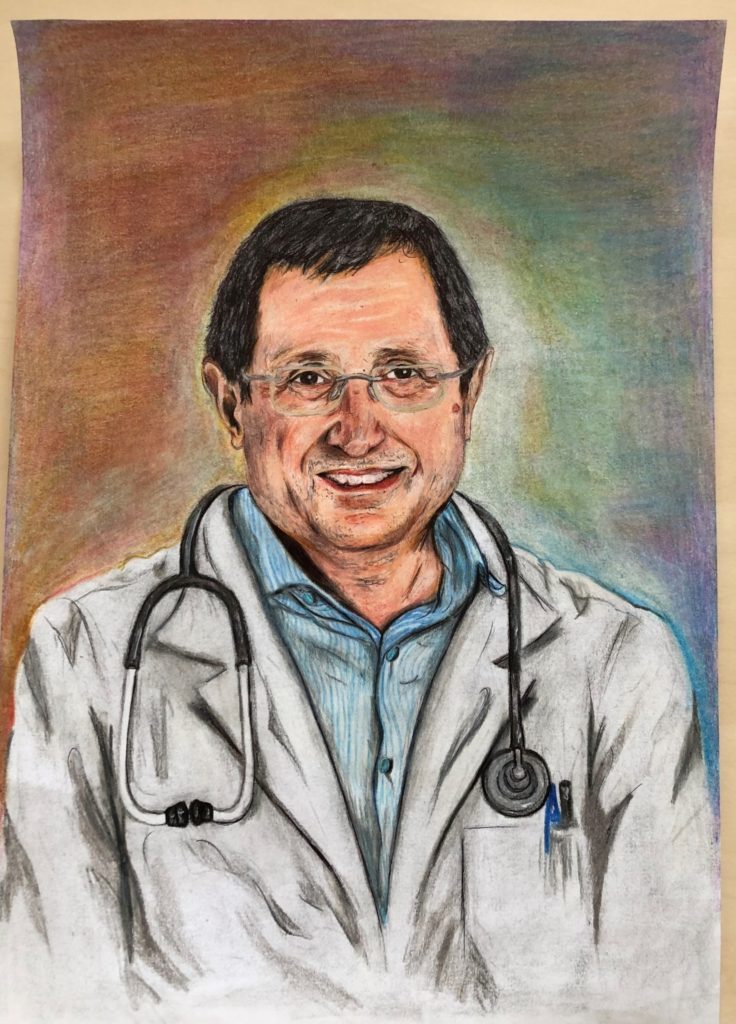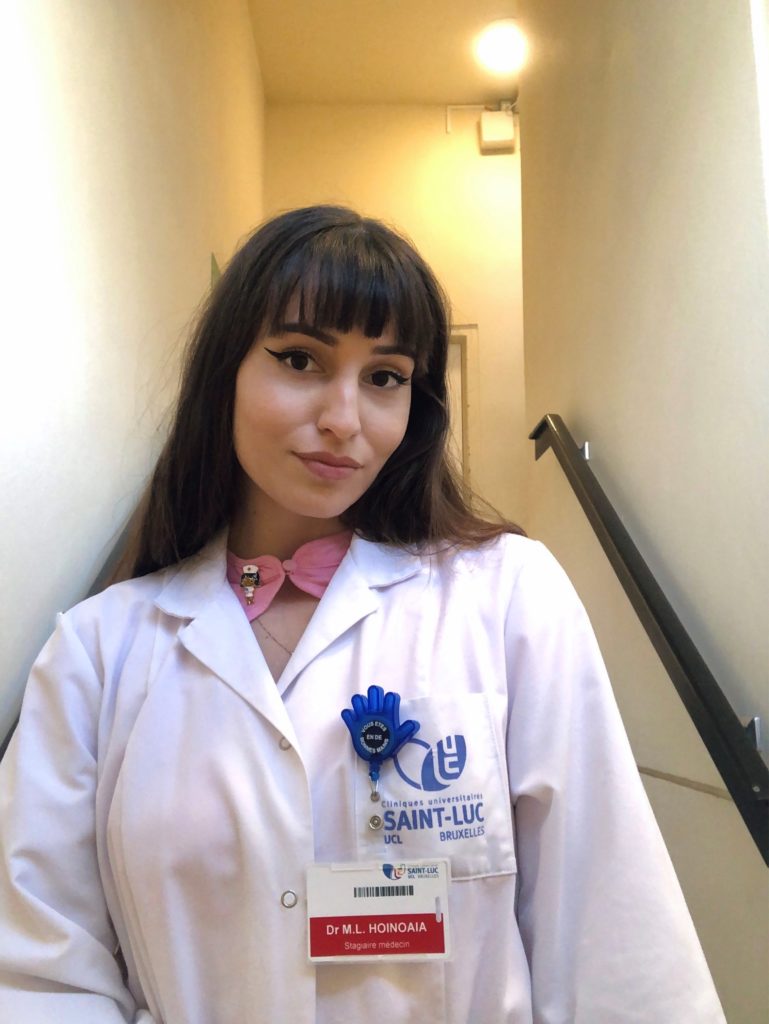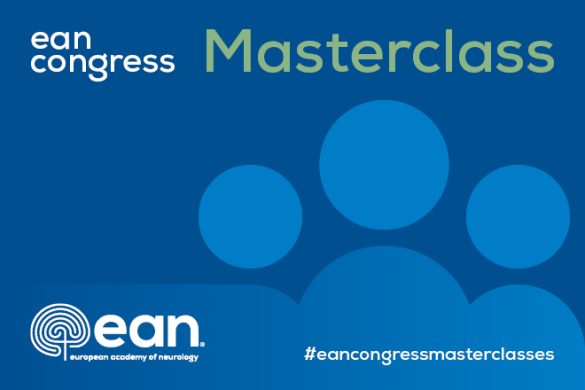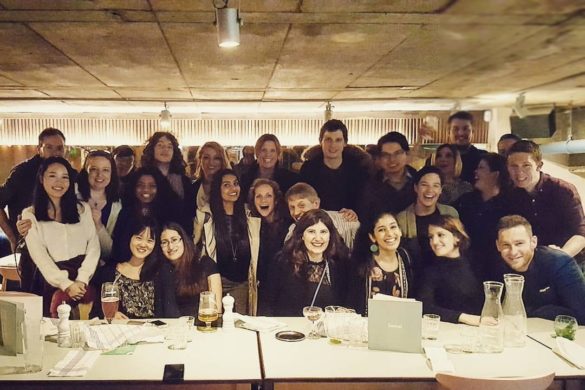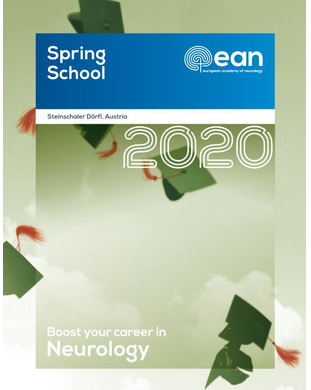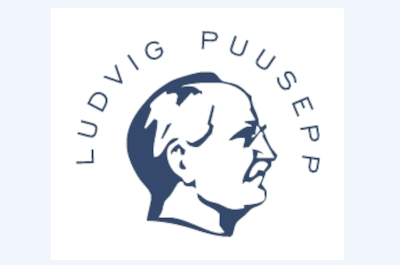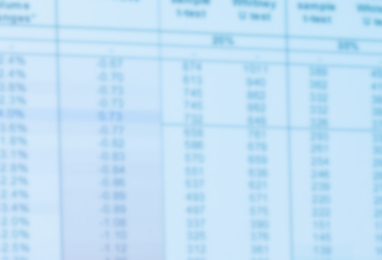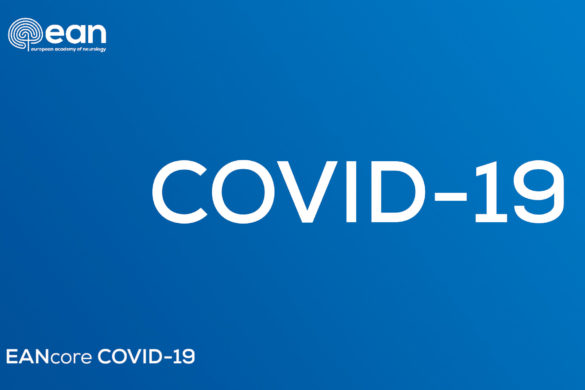Report from 4 weeks in London
by Alice Jelmoni
visiting the Movement Disorders Department at the UCLH, Institute of Neurology
It was a great honour to be selected for the EAN Student Teaser Fellowship, which allowed me to spend four weeks at the Movement Disorders Department at UCL Queen Square Institute of Neurology during the month of September 2022. I decided to apply for this fellowship since I am very fond of the clinical neurology practice and this fellowship is a great opportunity to gain experience in a specialised department.
I attended clinics as an observer. I learned a lot about the secrets of detailed and efficient history taking, to try to discover subtle but important details in the clinical history of patients. Queen Square gets a lot of international patients, and my European multicultural background allowed me to help the consultants in communicating with international patients on a few occasions. I had the chance to observe great clinicians performing physical examinations, tailored to the patients’ most likely conditions. In fact, many pioneers of movement disorders, like Prof. Kailash Bhatia and Prof. Andrew Lees, suggest reading Arthur Conan Doyle to get inspired by the art of observation. Whenever I encountered a condition I didn’t know about, I consulted the literature during the evening. One advice that the late Prof. David Marsden used to give is that “the eyes don’t see what the mind doesn’t know”. I learned that to be true observing physical examinations.
I have encountered many syndromes I didn’t know about: glucose transporter type 1 deficiency syndrome, Niemann Pick type C, PRRT2-associated paroxysmal movement disorders, DPPX encephalopathy. These are all quite rare conditions. However, what struck my mind the most were functional neurological disorders (FNDs). I hadn’t heard about FNDs until I came to Queen Square, since the topic is not part of the clinical neurology curriculum in my medical degree course. I then learned that FNDs are a very hot topic in neurology nowadays. I focused a lot on how to perform history taking and physical examination tailored to the patients who suffer from an FND. Importantly, I also learned how to correctly explain to patients what functional neurological disorders are; conditions that are not exactly clear-cut.
Overall, the fellowship was a memorable and enriching experience. The consultants I shadowed were all extremely available and would happily take my questions and give exhaustive explanations. I will cherish and put to good use all the knowledge I acquired during this fellowship.
Report from 4 weeks in Brussels
by Lavinia Hoinoaia
visiting the Cliniques universitaires Saint-Luc (UCLouvain), Department of Neurology
I have the pleasure to share my amazing experience on a Student Teaser Fellowship at the neurology department during my internship and I will start by saying how incredible it was to hear that Prof. Ivanoiu, with whom I stayed the most during this time, was not only from my country, but also from my birth town and therefore we had many people in common.
I was diagnosed with narcolepsy type 1 not long ago and I was happy that I found someone with whom I could talk more about it, and to hear that he had a few patients with this condition.
The program started at 8:00, when we gathered every morning in the same place and then started visiting all the patients. I saw a young patient of my age who was presenting with myeloneuropathy due to nitrous oxide consumption. She had very low b12 levels so that she was not able to walk or stand up. Another young woman who remained in my mind was a patient that came to the emergency unit with a suspected cerebral vascular accident but it eventually transpired that she had a very bad hysteria crisis.
I was very pleased to be able to spend a lot of time at the stroke unit, mostly under the supvervision of Prof. Ivanoiu, at the clinics consulting patients with memory disorders. I was also invited to take part in the meetings where different types of conditions were discussed, including epilepsy and cases of stroke that came to the emergency department in the days before. I also took part at the administrative meetings, where they were talking about problems and how to solve them. All this made me feel like I was really a part of the team.
At lunch I usually met new people, but I did not go every day to the canteen with them because, due to my condition, I often just wanted to take a nap. Prof. Ivanoiu was very understanding and had no problem with this.
I could not ask for more from this experience. It was for sure the best I had, and I keep the memory of it deep inside my heart. On my last day I made Prof. Ivanoiu a short funny poem and I drew him a portrait. Parting was an emotional moment; it almost felt like leaving my own home.

